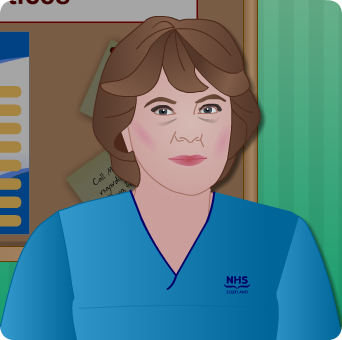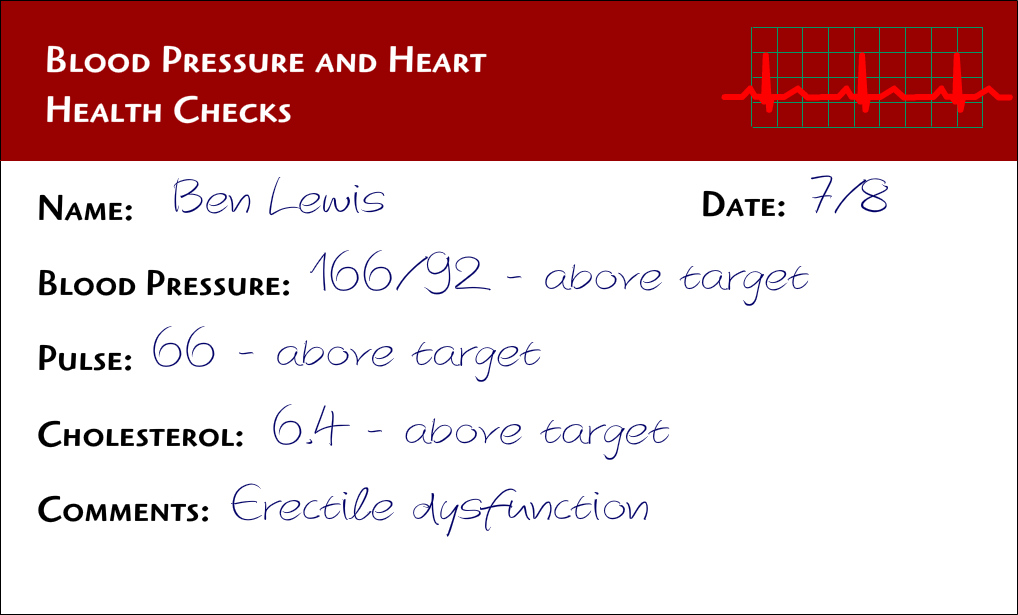
Ben goes to see the nurse the next day as the doctor has suggested she begins discussing with him the reasons he has not been taking his medications. The nurse summarises the main issues with Ben regarding his assessment and notes his readings down. She explains that target readings are decided using evidence based guidelines and are directly related to secondary prevention of further cardiac events.
Ben asks the nurse if she can be clearer about these as he doesn’t understand the jargon. The nurse then explains more about the targets for BP and cholesterol levels. She then shows Ben his results in relation to these targets. Ben says he now feels like he has a better understanding about how and why he needs assessed and how his medications are affecting these. When the nurse shows Ben the results she explains that the first three problems are all related to the fact that Ben is not taking his medications.

She tells him that any problems that have occurred since stopping his medicines are unlikely to be related to his medicines as he hasn’t been taking them. She explains that not being adherent to medications can have effects for the long term.
- Last BP 166/92 – above target
- Last Pulse 66 – above target
- Cholesterol level 6.4 – above target
- Erectile dysfunction
Pulse point
Non-adherence to medications can cause additional morbidity for the patient as well as a huge financial burden to the NHS.
The literature uses several terms for describing patient’s not taking their medications. Earlier literature often used the term “non-compliance” which suggested the patient was not doing what they were told and it carried a very paternalistic notion. The idea the doctor knows best and will tell you what to do is no longer prescribed to and it is now a doctor-patient partnership with patient’s having a greater say in their care. The term more commonly used now is “non-adherence”.
Page last reviewed: 04 Jun 2020


